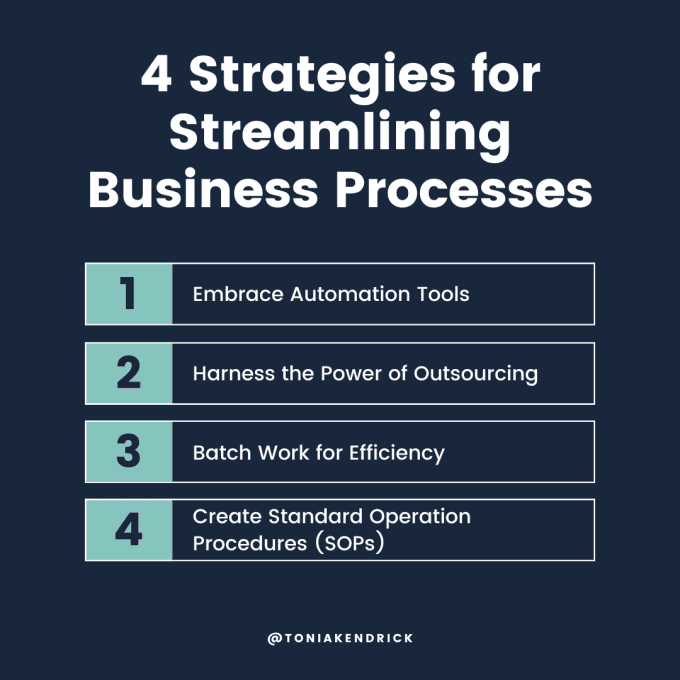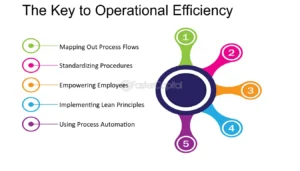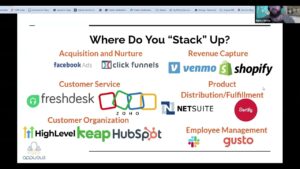Streamline Operations with Essential Business Tools for Growth
Using the right business tools can help streamline operations, automate tasks, and position your company for sustainable growth.
Introduction:
Running a growing business comes with its fair share of challenges. As your company scales, keeping track of processes, data, and workflows can become overwhelming. That’s where business tools come in. The right tools can help automate time-consuming tasks, improve communication, and ensure smooth collaboration across departments, allowing you to focus on growth. In this article, we’ll explore the essential business tools you need to scale effectively.
Why Business Tools Are Vital for Growth
Business tools simplify daily operations by automating repetitive tasks, managing data more effectively, and enhancing team collaboration. When properly implemented, these tools can significantly improve your company’s efficiency, ultimately leading to faster growth.
Key Benefits of Using Business Tools:
- Increased Productivity: Automating routine tasks frees up valuable time for more strategic initiatives.
- Cost Savings: Automation reduces human error, streamlines operations, and lowers labor costs.
- Improved Collaboration: Cloud-based tools enable teams to work together seamlessly, regardless of location.
Types of Business Tools to Drive Growth
There are various categories of business tools that can drive growth, each designed to address specific pain points within a company’s operations. Below are some of the most crucial tools for scaling your business:
1. Project Management Tools
Effective project management is essential for keeping track of deadlines, resources, and progress. Tools like Asana and Trello provide a clear overview of tasks, assign responsibilities, and enable teams to collaborate in real time.
2. CRM Tools
Customer Relationship Management (CRM) tools like Drip or HubSpot automate customer interactions, track leads, and manage your sales pipeline. These tools are particularly useful for companies looking to scale their client base while maintaining personalized customer service.
3. Accounting and Finance Tools
As your business grows, managing finances becomes more complex. Tools like QuickBooks and Xero simplify accounting, invoicing, and payroll processes, ensuring you stay on top of your company’s financial health.
4. Communication Tools
Good communication is critical for business success. Platforms like Slack and Microsoft Teams help teams stay connected and collaborate more effectively, whether they’re working remotely or in-office.
5. Automation Tools
Automation tools like Zapier and Vendasta allow you to connect different apps and automate workflows, saving your team hours of manual work. These tools can handle tasks like lead generation, email marketing, and data syncing between platforms.
6. Inventory Management Tools
For ecommerce businesses, inventory management tools like Katana Cloud Inventory streamline product tracking, order fulfillment, and restocking processes, ensuring your operations run smoothly as you scale.
Choosing the Right Business Tools
With so many tools available, selecting the right ones for your business can be overwhelming. Here are some tips for choosing the right tools:
1. Identify Your Needs
Start by identifying the specific pain points in your business operations. For example, if your team struggles with communication, consider adopting a tool like Slack. If managing customer data is a challenge, a CRM tool might be the solution.
2. Test Before Committing
Most business tools offer free trials or demo versions. Take advantage of these to test whether a tool fits your team’s workflow and improves efficiency.
3. Opt for Scalable Tools
As your business grows, your tools should grow with you. Look for tools that can accommodate an expanding team, increasing data loads, and more complex operations.
How Business Tools Foster Sustainable Growth
Sustainable growth means scaling your business without compromising quality or customer satisfaction. Business tools play a key role in this by providing the infrastructure needed to handle increased workloads, improve communication, and automate repetitive tasks. For example, CRM tools allow you to maintain personalized relationships with customers, even as your client base grows. Similarly, project management tools help teams stay organized and meet deadlines, which is crucial when juggling multiple projects simultaneously.
Common Challenges When Implementing Business Tools
While business tools offer numerous advantages, implementing them can present certain challenges. Here are some common issues and how to overcome them:
1. Resistance to Change
Employees may resist using new tools, especially if they are unfamiliar or disrupt their routine. Overcome this by offering thorough training and demonstrating the benefits of the tool.
2. Data Migration Issues
Moving data from one system to another can be time-consuming and error-prone. Ensure a smooth transition by creating a detailed migration plan and using migration tools to minimize errors.
3. Tool Overload
With so many tools available, it’s easy to adopt more than your team can handle. Keep your tool stack streamlined by only using the tools that directly address your business needs.
FAQs
What are the most essential business tools for a growing company?
The most essential tools include CRM systems, project management platforms, accounting software, and communication apps. These tools help streamline operations and support scalability.
How can I choose the right business tools for my company?
Identify your team’s pain points and needs, then research tools that directly address those issues. Test out different tools with free trials to ensure they fit your workflow.
Can business tools help with remote team management?
Yes, tools like Slack, Microsoft Teams, and Asana make it easier to manage remote teams by keeping everyone connected and providing clear task management.
What is the role of automation in business growth?
Automation simplifies repetitive tasks like email marketing and data syncing, allowing your team to focus on more strategic work, which accelerates growth.
How can I avoid tool overload?
Start small by implementing one or two tools that solve your biggest challenges. Gradually add more tools as needed, ensuring they integrate well with your existing tech stack.
Top Tools to Simplify and Scale Your Business
- Drip – An advanced CRM tool that automates customer interactions and marketing campaigns.
- HubSpot – A robust CRM platform with features for sales, marketing, and customer service.
- Katana Cloud Inventory – A cloud-based inventory management tool that helps streamline order fulfillment for growing businesses.
- Asana – A project management tool that keeps teams organized and on track with deadlines.
- QuickBooks – Accounting software designed to simplify invoicing, payroll, and financial reporting.
- Slack – A communication platform that enables real-time collaboration among team members.
- Zapier – An automation tool that connects apps and automates workflows to save time.
Keywords: business tools, scaling business, project management tools, CRM, automation, communication tools, inventory management, finance tools, business growth







